Biophilic design transforms spaces, promoting humans' reconnection with the environment, for more healthy, harmonious living.
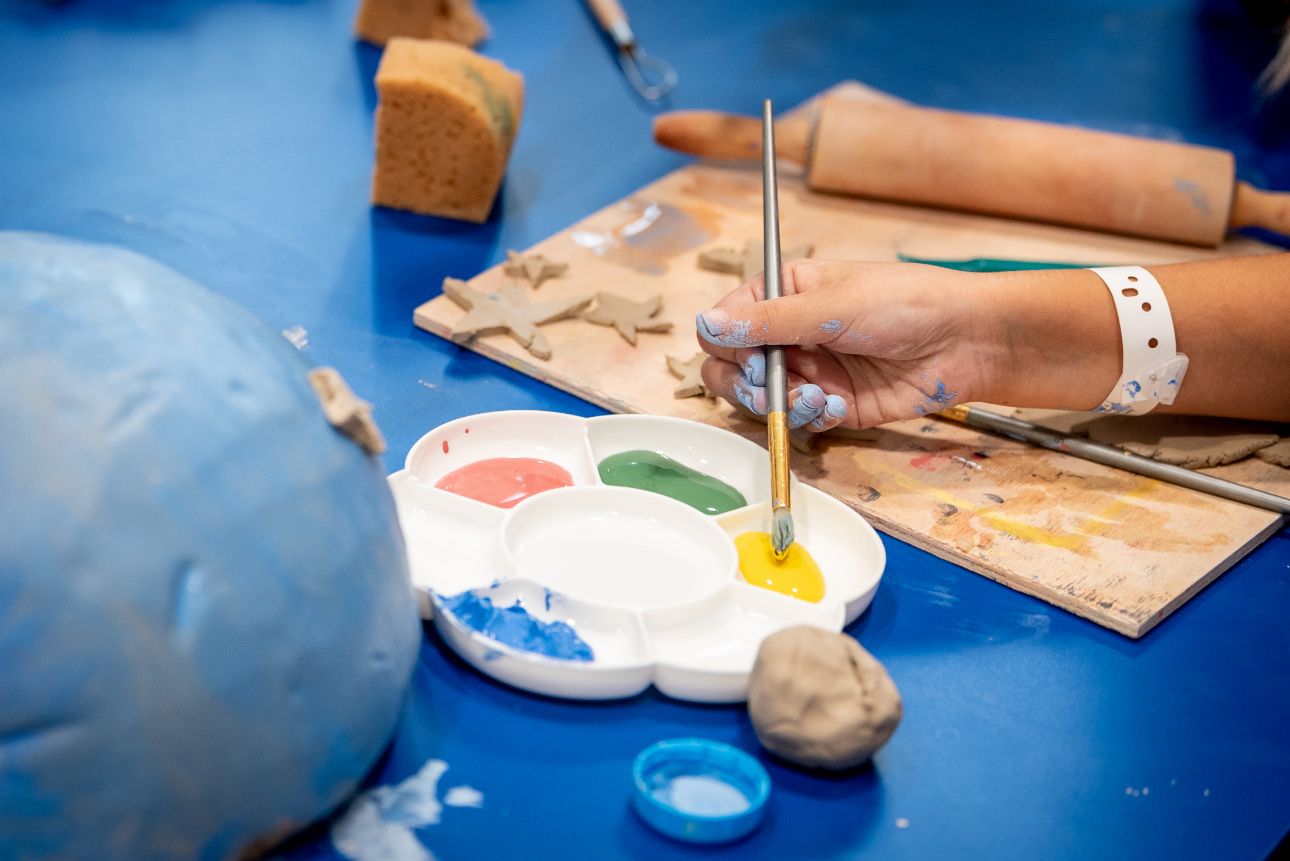

The Lene Thun Foundation has been active for 18 years, and since 2014 they have been working to bring joy and comfort to young pediatric oncohematology patients in Italian and European hospitals, through free pottery therapy workshops. This initiative, which now involves 33 hospitals, has already reached over 70,000 children and their families, transforming moments of difficulty into opportunities for creativity and light-heartedness.
The foundation is part of the Thun S.p.A. SB ecosystem, known for its collector's items and household goods, which has been able to transform its core business into an activity that also has a social purpose, embracing pottery therapy. This initiative represents a strategic, virtuous ramification that connects art and wellbeing, generating a positive social impact, not only within the company itself, but which is also replicable and multipliable.
As part of THUN's socially-responsible activities, the foundation invites local businesses to take an active part in this journey of solidarity, as well as other collaborators of the group. Through volunteering and contributions to benefit events, a network of support has been created with an impact that extends well beyond the workshops, involving business communities in supporting this valuable initiative.
The foundation works to maintain a constant presence in the hospitals where it is active, guaranteeing consistent support for children and their families during their long hospital stays. Every pottery therapy workshop is managed directly by the foundation, which guarantees high quality standards and long-term commitment.
We met with Paola Adamo, the Charity General Manager at the Lene Thun Foundation, who told us the story of this great initiative.
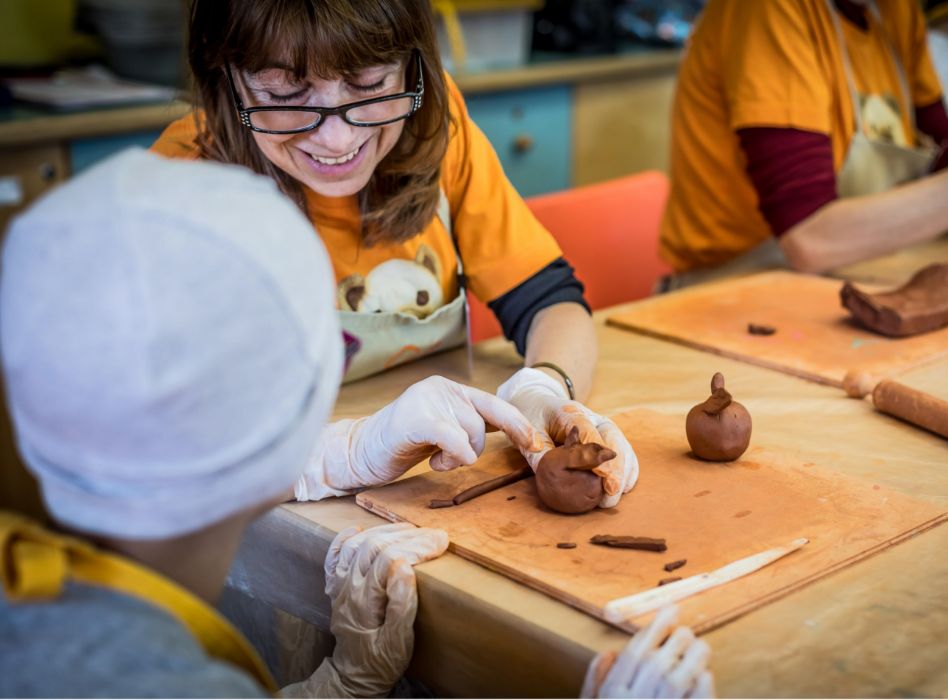
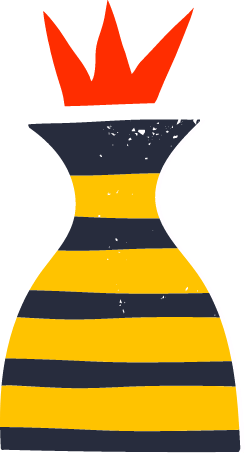
At the foundation, we are convinced that there is no longer a place for businesses that don't consider their socio-environmental impact as an integral part of their business model: it is now a necessary condition in order to have any future development. This is why businesses need to take responsibility for the socio-environmental challenges we are all called to face. In particular, we propose that companies support vulnerable children in their community. By supporting our pottery therapy workshops, a company can help to improve the quality of life of children in pediatric oncohematology wards in the hospitals in their area, and throughout the national territory.
Any company can decide to support the foundation with free donations for the pottery therapy offered to children and families in their region; with donations of materials and services useful for the foundation's activities; by participating in corporate volunteering plans proposed ad hoc based on the company's needs; or by participating in pottery therapy team-building activities developed based on the needs of corporate CSR plans.
Our approach is based on the philosophy of "a little from a lot of people": we believe that even the smallest contributions, whether they are sporadic or regular donations, such as the adoption of projects at our network's shops or other supportive retailers, can add up to create great change. This principle allows us to maintain continuity in our recreational therapy, which is a fundamental element for its success. Similarly, dedicating even only a little of your time to volunteering can have a significant impact. In this context, the accumulation of many individual efforts creates a powerful collective force. The main forms of support include donations, adopting workshops, participation in benefit events and "cinque per mille" tax donations. We are also open to new ideas for support, including corporate volunteering projects.
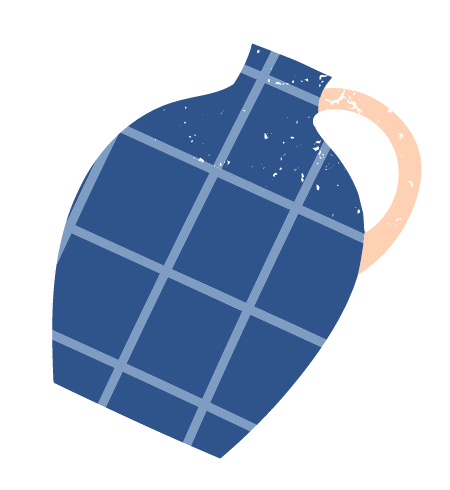
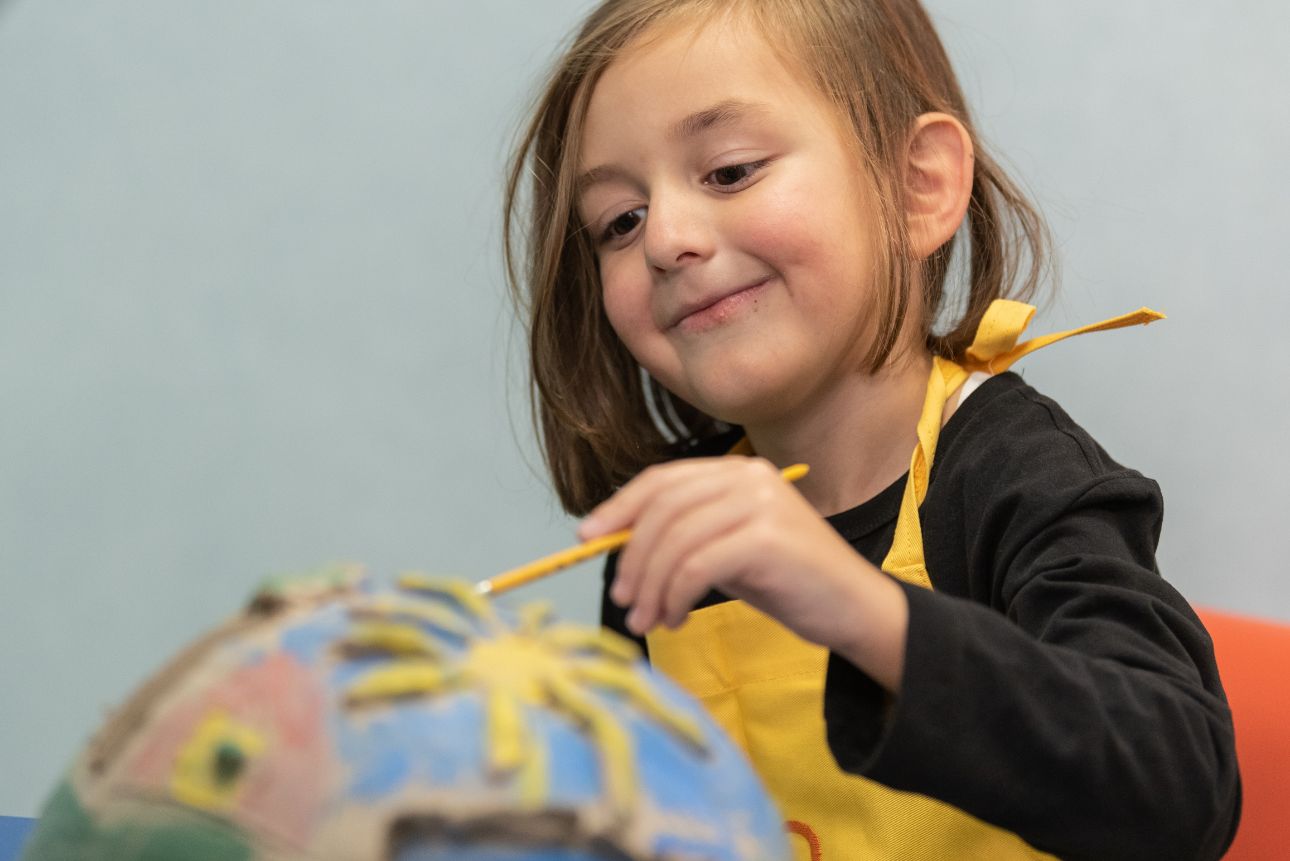
Pottery therapy stimulates creativity and allows young patients to express their emotions, which puts their bodies in a condition to better receive pharmacological treatment and helps them to face this complicated time in their lives.
These children are not their disease: in every activity, the person is put at the centre, with their personal needs for growth and development, also in terms of creativity and manual skill, in order to let the disease fade into the background.
According to the definition from the WHO - the World Health Organisation - by health, we don't just mean the absence of disease, but rather having a general state of physical, social and mental wellbeing.
The overall treatment of a patient needs to be offered in a way that means the disease, with everything that comes with it, can be experienced only as a parenthesis. A difficult parenthesis, but one that is only temporary, and shouldn't make the child lose their desire to play and laugh, grow and develop, experiment and learn. Because quality of life is a right, even during illness.

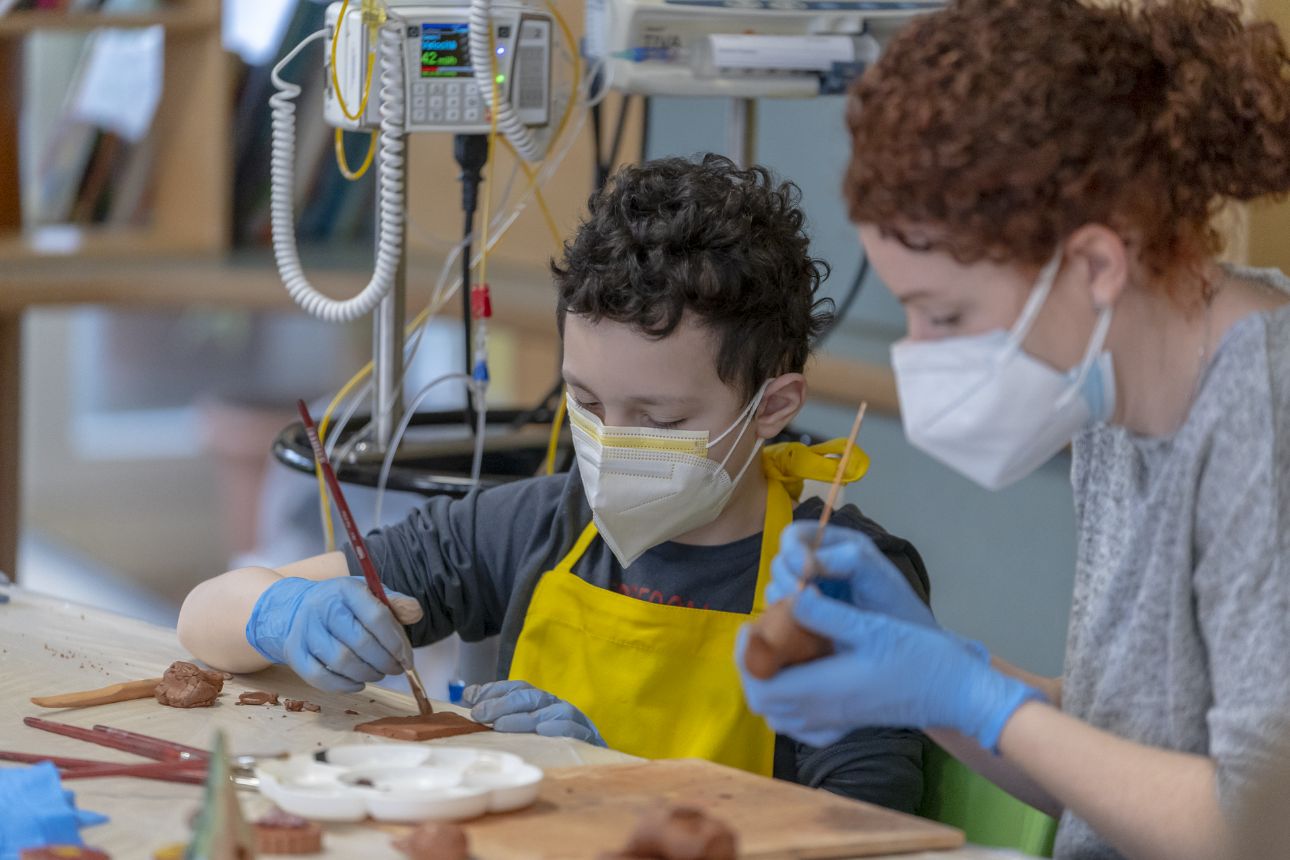
"Creativity has the power to stimulate the "healthy part" of the child or young person, through play, manual dexterity and socialising, which are fundamental elements for development in childhood. The goal is to make sure that these elements are not lost during the period of illness and hospitalisation, preserving their function in order to provide a regular, positive journey of development.
Pottery therapy tangibly helps children and young people to overcome the fear, pain and frustration of being ill. Controlling and reducing stress leads to a decrease in the activity of neurotransmitters such as catecholamines (adrenaline and noradrenaline), with a resulting drop in heart rate, blood pressure and breathing rate. Furthermore, a drop in cortisol, a hormone that reduces immune defences, leads to improvement in the body's defensive performance. A state of joy and wellbeing encourages the release of beta-endorphins, with analgesic and immunostimulant effects."
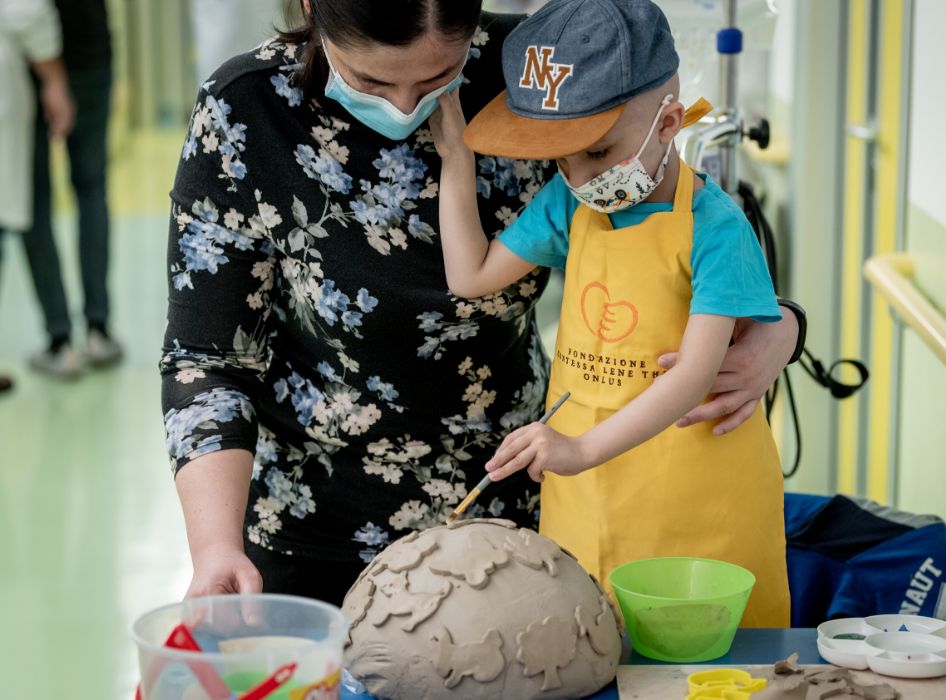
"Since 2020, the foundation has expanded its offer, including a digital model, which allows children being treated at home or in isolation to participate in workshops. This approach includes the delivery of a home modelling kit to guarantee continued creative activity. The digital workshops are every day, reassuring children and families with our constant commitment and presence. In parallel, the foundation, along with its scientific committee, is working on the scientific validation of recreational therapy, reinforcing the recognition of this practice as a fundamental part of hospital treatment."
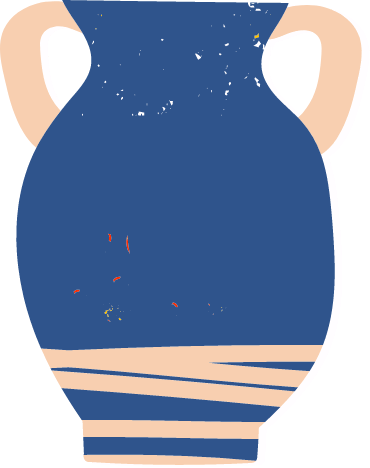
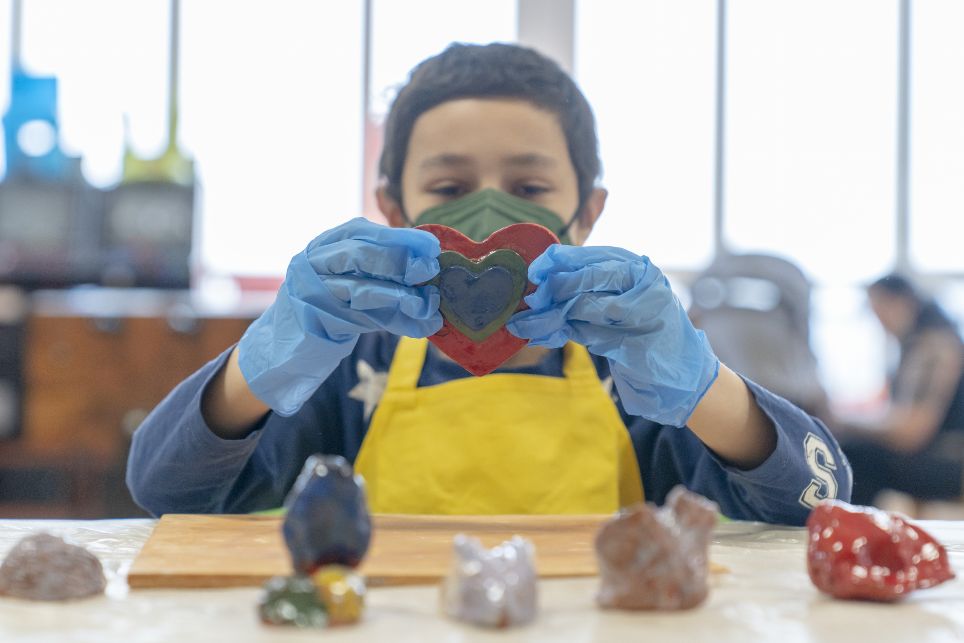
The Lene Thun Foundation has skilfully interwoven the art of ceramics with the wellbeing of hospitalised children, creating an exemplary model of virtuous diversification.
From this union they have created a complementary activity, pottery therapy, which not only enriches social connections, but also strengthens the link between the corporate sector and healthcare, demonstrating how social innovation can grow from traditional roots and transform into a powerful vehicle for positive change.
Images Credits:
© Fondazione Lene Thun
Biophilic design transforms spaces, promoting humans' reconnection with the environment, for more healthy, harmonious living.
Cedä M transforms an ancient home into a haven of sustainability and art, triggering conscious tourism.
